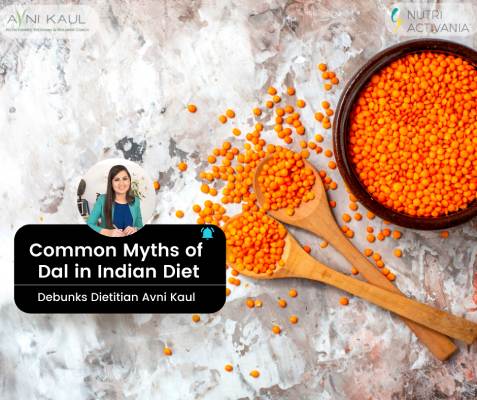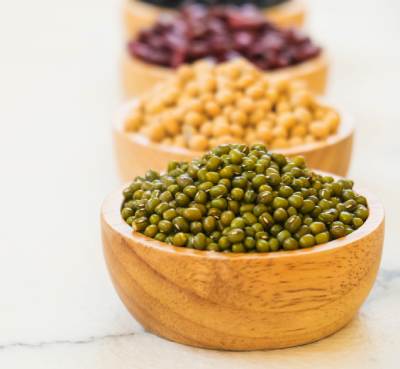
Mostly, whenever you ask a vegetarian about their protein source, they will talk about lentils, better known as dal. There is no denying that lentils have protein and are an economical source of this macronutrient.
However, what most people fail to look at is the amount of protein that these lentils offer us, particularly when they are cooked with four parts of water with one part of dal. Here is what all vegetarians must know about their beloved ‘protein source’, dal as disclosed by India’s top dietician Avni Kaul.

Dal’s protein content
There are multiple kinds of lentils and each one has its own nutritional content. However, considering an average would tell us that every 100 grams of lentils have just about 10 grams of protein. For fact revision, our daily protein need is 40-60 grams per day, depending on our weight.
Also, generally, 100 grams of dal is cooked for the entire family of letting us say four members. So, the protein that a person will consume would be around 2 to 3 grams.
Dal’s carbohydrates content
Also, what you may not know is that lentils have twice the amount of carbohydrates than it has protein. In every 100 grams of lentils, there are more than 20 grams of carbohydrates. However, the good thing is that approximately half (9 grams) of this carbohydrate is fibre. So, it is as many carbohydrates as it is protein, just slightly more.
The method by which most people cook dal
Now, a big issue with the Indian style of eating lentils is that most people make dal as a water-based curry. This further decreases the number of lentils that you are consuming. As pointed out earlier, a bowl of cooked dal would not contain more than 2-3 grams of protein and does not equal a tenth of your regular protein requirement.
The right procedure and quantity
If you actually want to consume lentils to avail protein, have them simply boiled and without curry. Even then, know that each bowl will just provide you with just 10-15 grams of protein, besides double the carbohydrates.
So, if you are not eating any other source of protein, you need to have at least four bowls of boiled, non-curry-based dal. However, this is not the proper way to get your protein because:
Why lentils are not complete proteins?
The proteins provided by lentils are not complete because they do not have all the essential amino acids that one needs, which might be provided by, let’s say, egg or meat.
How to make dal a complete protein?
If you are a vegetarian and depend only on lentils for your protein needs, then you need to combine your lentils with whole grains and with various seeds that provide you the required essential amino acids. You can also combine your dal with paneer, or soya, Curd or nuts as a side meal.

I am Avni Kaul a Dietician in Delhi and Founder of Nutri Activania with Masters Degree in Food and Nutrition from University of Delhi and is also a Certified Diabetes Educator from Project Hope and International Diabetes Federation. She is a Leicester Mammas Ambassador trained in Lactation Counselling with NHS United Kingdom. Mammas support pregnant and new mothers and their families. Specializations of Avni Kaul Include Infant and Young Child Feeding Practises, Pre and Post natal diets, Fat loss, Muscle Gain and Holistic Health and Nutrition
Avni Kaul is Founder of Nutriactivania with Masters Degree in Food and Nutrition from University of Delhi and is also a Certified Diabetes Educator from Project Hope and International Diabetes Federation. She is a Leicester Mammas Ambassador trained in Lactation Counselling with NHS United Kingdom. Mammas support pregnant and new mothers and their families. Specializations of Avni Kaul Include Infant and Young Child Feeding Practises, Pre and Post natal diets, Fat loss, Muscle Gain and Holistic Health and Nutrition
2024 © All Rights Reserved